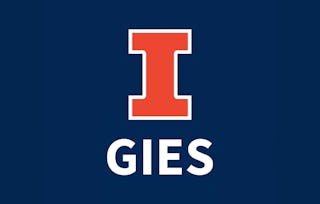In markets, prices act as rationing devices, encouraging or discouraging production and consumption to find an equilibrium. In this course, you will learn to construct demand curves to capture consumer behavior and supply curves to capture producer behavior. The resulting equilibrium price “rations” the scarce commodity. Additionally, the course examines the ways in which markets are subject government intervention and the impacts of these interventions.

Firm Level Economics: Markets and Allocations
5 days left! Gain next-level skills with Coursera Plus for $199 (regularly $399). Save now.

Firm Level Economics: Markets and Allocations
This course is part of Managerial Economics and Business Analysis Specialization

Instructor: Larry DeBrock
49,934 already enrolled
Included with
(1,176 reviews)
What you'll learn
Explain how different market structures result in different resource allocations.
Model the impact of external shocks to a particular market structure and demonstrate the new equilibrium price and quantity.
Explain when and why the government might intervene with regulatory authority or antitrust litigation to lessen inefficiencies in some markets.
Describe how information problems can cause inefficient outcomes.
Skills you'll gain
Details to know

Add to your LinkedIn profile
13 assignments
See how employees at top companies are mastering in-demand skills

Build your subject-matter expertise
- Learn new concepts from industry experts
- Gain a foundational understanding of a subject or tool
- Develop job-relevant skills with hands-on projects
- Earn a shareable career certificate

There are 4 modules in this course
You will become familiar with the course, your classmates, and our learning environment. The orientation will also help you obtain the technical skills required for the course. This module will also introduce the concept of a perfectly competitive market. It is a benchmark construction, but it accurately models many markets in our economy. We will understand equilibrium outcomes in both the short run and the long run. We will understand how to analyze shocks to these equilibria.
What's included
14 videos8 readings4 assignments1 discussion prompt
Analysts can predict equilibrium outcomes with some degree of certainty. We want to construct a measure of efficiency that will allow us to evaluate the attractiveness of these equilibrium market outcomes. After using this metric to consider the efficiency of the competitive market, we will introduce a different market structure, monopoly, and use our efficiency metric to evaluate the equilibrium resource allocation under monopoly.
What's included
10 videos2 readings3 assignments
Perfectly competitive markets have many sellers. Monopoly has one seller. But much economic activity takes place in markets with just a handful of very large producers. These are called oligopoly markets. We will look at collusive arrangements among a small number of rivals, and then will use simple game theoretic techniques to model equilibrium.
What's included
15 videos2 readings3 assignments
Sometimes even markets that appear to be capable of great efficiency in resource allocation, such as the perfectly competitive market, can fall short of efficiency. Economists call this market failure. In this module, we will consider information issues and the impact on efficiency. We will also introduce externalities (spillovers) such as pollution and model these impacts.
What's included
9 videos5 readings3 assignments1 peer review1 plugin
Earn a career certificate
Add this credential to your LinkedIn profile, resume, or CV. Share it on social media and in your performance review.
Build toward a degree
This course is part of the following degree program(s) offered by University of Illinois Urbana-Champaign. If you are admitted and enroll, your completed coursework may count toward your degree learning and your progress can transfer with you.¹
Instructor

Offered by
Explore more from Finance
 Status: Free Trial
Status: Free TrialUniversity of Illinois Urbana-Champaign
 Status: Free Trial
Status: Free TrialIllinois Tech
 Status: Free Trial
Status: Free Trial Status: Free Trial
Status: Free TrialRice University
Why people choose Coursera for their career

Felipe M.

Jennifer J.

Larry W.

Chaitanya A.
Learner reviews
- 5 stars
86.64%
- 4 stars
11.73%
- 3 stars
1.02%
- 2 stars
0%
- 1 star
0.59%
Showing 3 of 1176
Reviewed on Jul 14, 2016
Excellent course and excellent mentor who can really make you to rediscover the economy and love it much more than before. Great thanks.
Reviewed on Apr 25, 2020
The whole course was just amazing with clear and crisp explanation for each and every detail and special thanks to the tutor Prof.Larry DeBrock.
Reviewed on Mar 22, 2016
I like this professor and he taught beautifully even in Producer and Consumer behavior, the prequel course in this specialization. High expectations from this course!

Open new doors with Coursera Plus
Unlimited access to 10,000+ world-class courses, hands-on projects, and job-ready certificate programs - all included in your subscription
Advance your career with an online degree
Earn a degree from world-class universities - 100% online
Join over 3,400 global companies that choose Coursera for Business
Upskill your employees to excel in the digital economy
Frequently asked questions
Once you enroll for a Certificate, you’ll have access to all videos, quizzes, and programming assignments (if applicable). If you choose to explore the course without purchasing, you may not be able to access certain assignments.
You will be eligible for a full refund until 2 weeks after your payment date. You cannot receive a refund once you’ve earned a Course Certificate, even if you complete the course within the 2-week refund period. View our full refund policy.
Yes! Coursera provides financial aid to learners who would like to complete a course but cannot afford the course fee. To apply for aid, select "Learn more and apply" in the Financial Aid section below the "Enroll" button. You'll be prompted to complete a simple application; no other paperwork is required.
More questions
Financial aid available,

